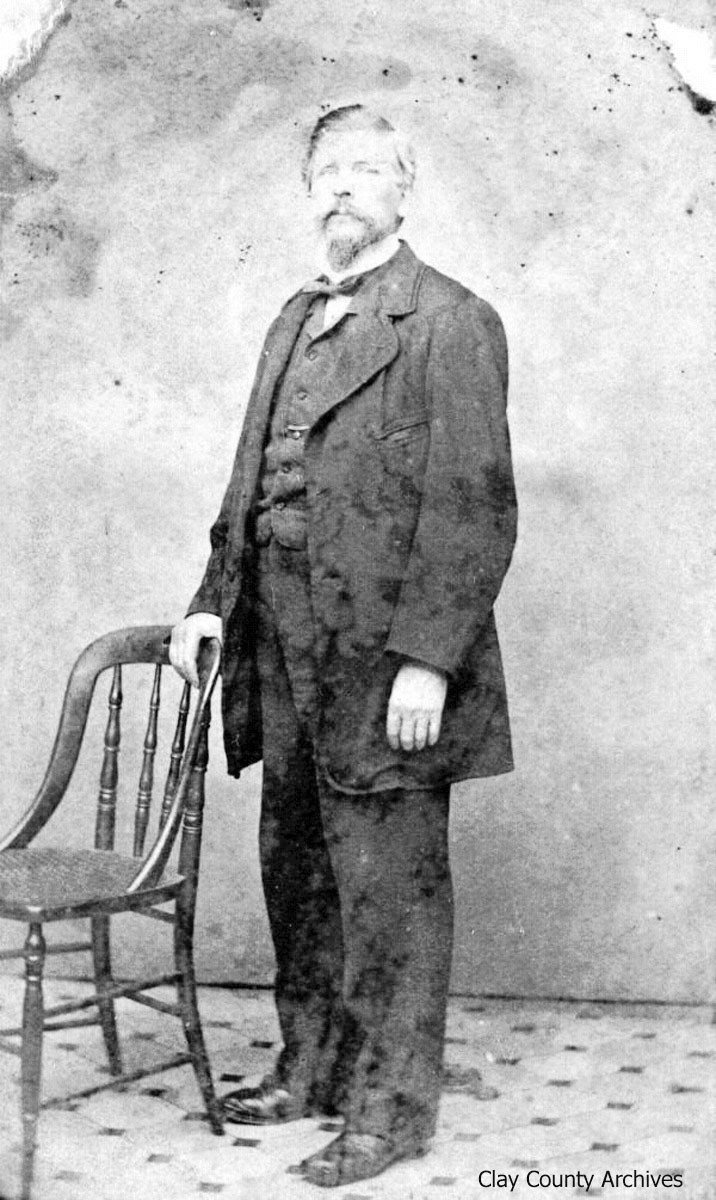Clay County Memories 6/14/18
Captain Jacob Brock and frontier East Florida made a perfect match
Jacob Brock was born in Vermont, at his father’s farm on the Connecticut River; he was destined to remain a river rat the rest of his life. Brock worked and trained as a mechanical engineer, …
This item is available in full to subscribers.
Attention subscribers
To continue reading, you will need to either log in to your subscriber account, or purchase a new subscription.
If you are a current print subscriber, you can set up a free website account and connect your subscription to it by clicking here.
If you are a digital subscriber with an active, online-only subscription then you already have an account here. Just reset your password if you've not yet logged in to your account on this new site.
Otherwise, click here to view your options for subscribing.
Please log in to continueDon't have an ID?Print subscribersIf you're a print subscriber, but do not yet have an online account, click here to create one. Non-subscribersClick here to see your options for subscribing. Single day passYou also have the option of purchasing 24 hours of access, for $1.00. Click here to purchase a single day pass. |
Clay County Memories 6/14/18
Captain Jacob Brock and frontier East Florida made a perfect match
Jacob Brock was born in Vermont, at his father’s farm on the Connecticut River; he was destined to remain a river rat the rest of his life. Brock worked and trained as a mechanical engineer, married and fathered four children in Hartford, Connecticut.
By the late 1840s, he and his four children were in Charleston, S.C. In 1849, he commissioned the construction of his first ship, The Darlington. She was a beauty. With competition in Charleston heating up after almost three years, Brock moved south to the St Johns River.
In the fall of 1853, Brock and his steam-powered side-wheeler, Darlington, began year-round scheduled service on the river from Jacksonville to Enterprise, 205 miles south on the river from Jacksonville, at Lake Monroe. This decision would be the key to his success.
Instead of irregular and seasonal commercial service, settlers now had a dependable method of shipping goods to market and reliable transportation for passengers and supplies.
The area was still in a fragile and budding era of civilization with periodic Indian attacks. Duval County, which still included Clay County in 1850, counted just a little over a thousand souls. Settlers were isolated and having consistent contact with the outside world in the form of Brock and the Darlington became a hugely comforting part of the equation. Locals fondly referred to the ship and her captain as the Old Reliable Line.
Brock lived big, he risked big and he reveled in hard work, enjoying life and the people along the river. Middleburg was his first base of operations and a logical choice because the area was teeming with activity and provided a continual supply of cargo.
The shrewd Captain Brock noticed increasing numbers of Northern and European tourists eager for a sportsman’s experience and constructed the Brock House in Enterprise. Men hunted and fished all day, then gathered with good brandy and strong cigars to laugh, spit and tell tales.
In 1860, Brock added the newly constructed, Hattie Brock, to his already expanding fleet. Named for his daughter, the side wheeler Hattie was equipped with powerful engines and posh accommodations for 75 to 100 passengers.
The rumblings of secession were already gathering on the horizon and Jacob Brock enthusiastically volunteered his ships and himself to the service of the Confederacy. Basically, Brock like most successful frontier pioneers, simply didn’t like to be told what to do by anyone – governments included.
In early 1862, a Union fleet attacked Fernandina and Brock raced to rescue fleeing Confederate sympathizers. Captain Brock and his passengers were captured. The Darlington escaped and was hidden by a loyal crew. Brock remained in prison in Boston for most of the war.
Not until the spring of 1864 was the Hattie found concealed in a remote tributary south of Palatka. A small crew was boarded to take possession and progressed to Enterprise to refuel. There, they suffered a severe and colorful tongue lashing from the porch of Brock House by none other than the boat’s namesake, young Hattie Brock. Granted, she was raised as a Southern belle but after all her father was a sailor.
Brock regained his ships after the war and picked up the pieces of his freewheeling, rollicking life. The Brock House in Enterprise became a particular favorite of Northern politicians and former military men. The Captain was never one to allow political differences to interfere with a good time and hosted with equal success Rockefellers, Goulds, Beechers, Pres. Ulysses Grant and Gen. William Sherman.
But times were changing and it took more than a fearless willingness to risk and good stories to succeed on the river. Florida tourist trade was becoming a gold mine and competition from the big boys was fierce. Jacob Brock amassed a fortune but was outmatched by immense bankrolls of the Baya and DeBary steamship giants.
Brock died at his shipyard in Jacksonville in May of 1877.








